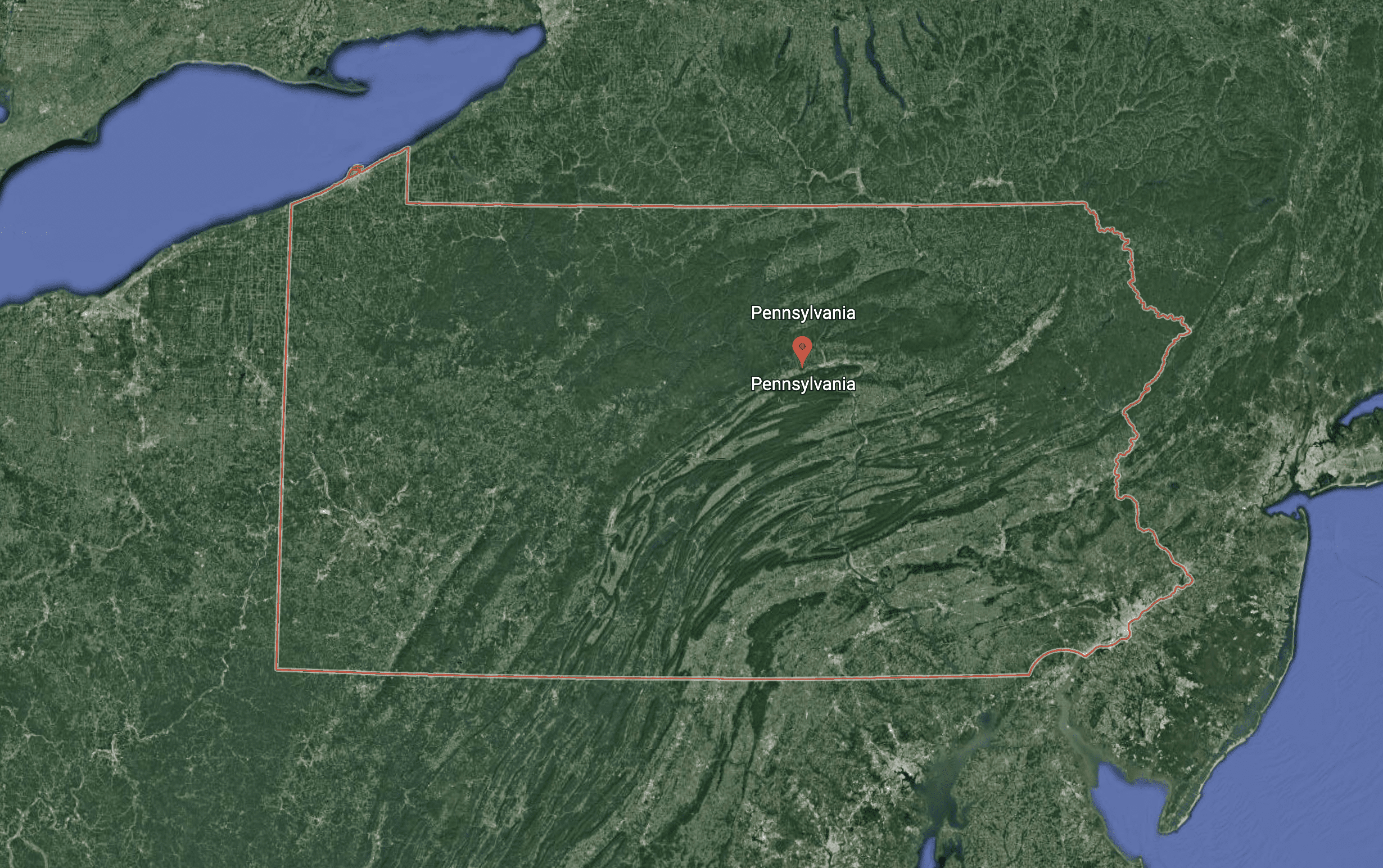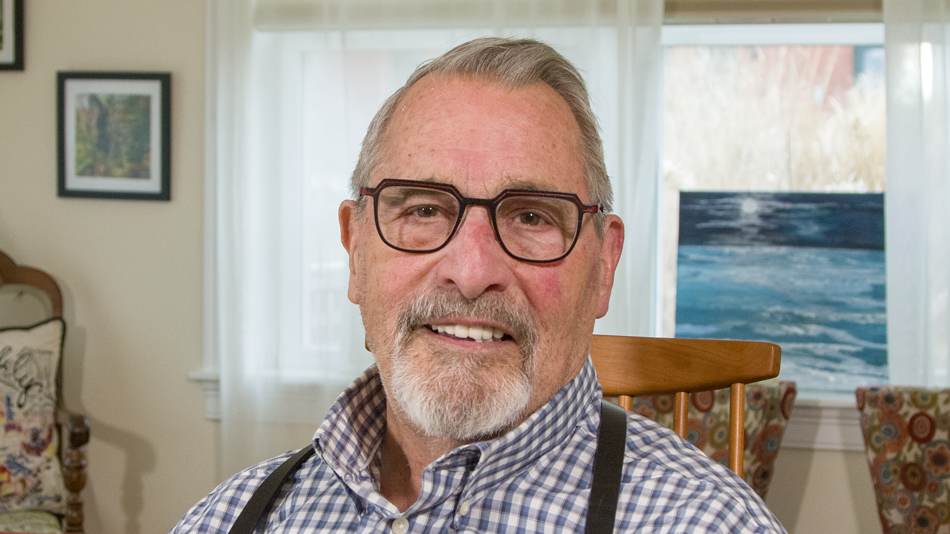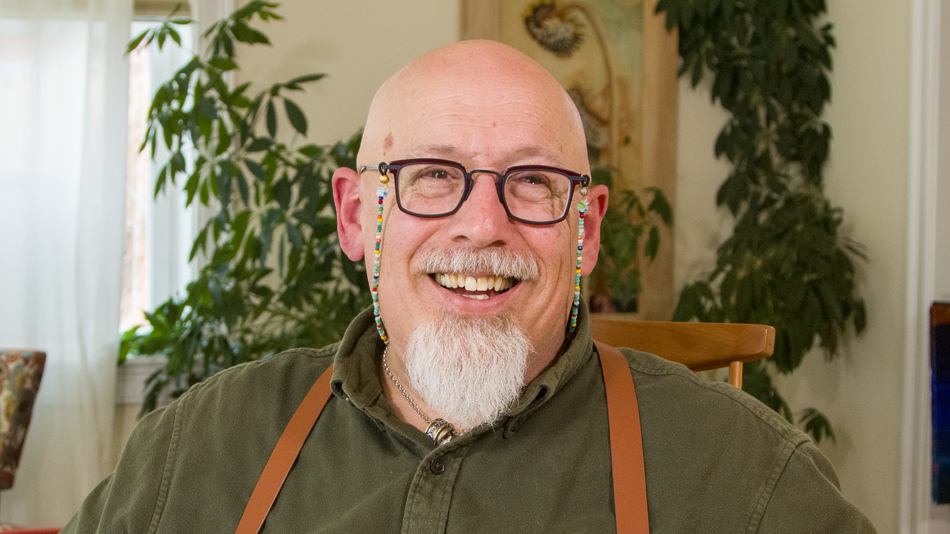
I started cautiously coming out in the late 70s, when I was still in high school. I left home about a year after graduating, supposedly to attend college but really just intending to get on with my Big Gay Life. However that did not go exactly as my youthful hopes had planned thanks to an unexpected spectre – AIDS, or GRIDS (Gay-related Immune Deficiency) as it was initially called. My first awareness of it was the sparse news stories about a mysterious “Gay Cancer” affecting some gay men in major urban centers like New York City and San Francisco.
I was about 22 and living in a college town in West Virginia, working for the university’s hospital when HIV/AIDS took its first personal twist for me. I’d had a case of bronchitis during a heat wave in July which led me to a visit with my doctor, Melinda Mullins.
During the exam she noted that I had swollen lymph glands in several places. She explained to me that since her specialty was Infectious Disease, she was as up to date as possible about AIDS and that swollen lymph glands in three or more places was considered a potential indicator of AIDS infection. To her credit she also told me that they could also mean nothing or that I had some other medical condition like lymphatic cancer. She sent me off to the lab for a blood draw and test to find out what was going on.
I can recall going back to my apartment and asking one of my roommates to borrow his car. It wasn’t until I’d been driving around on country roads for about a half hour that I started shaking and crying uncontrollably out of fear. I eventually pulled myself back together and tried to get back to life as usual. The wait for test results continued. Back then, it took about a week to get results from the first test, which was either an ELISA or Western Blot, I don’t remember which.
Finally the results came back; non-reactive (negative). Though relieved, my close call brought home the reality of the plague in a way that seemingly had not yet occurred to my friends. I got as informed as was possible during those fear and ignorance filled early days of the pandemic, and soon was trying to pass out condoms in the local small town gay bar.
My efforts were met with bafflement – condoms were for straight people, not gays. Some queens even reacted derisively. But over the next year or so we all started noticing that some friends were getting sick and some were simply disappearing from the social scene. I started hearing a new euphemism – when someone stopped showing up at the local bar, people would say that maybe he’d “moved to Pittsburgh.” It was the nearest metropolitan area and a center for research and treatment of AIDS.
It was a scary time – there was little reliable info to be found and tons of misinformation and a pervasive assumption that all gay people were now suspect Typhoid Marys. For those of us in that little gay community, it was even scarier watching friends sicken and die so speedily. One week you’d see someone who was the picture of health and vivacity and two weeks later they’d be nearly unrecognizable. Then you wouldn’t see them again. They’d “moved to Pittsburgh.”
I was about 23 when the first person from my inner circle of friends died from complications of AIDS. He was only two or three years older than me. He was also the roommate who’d lent me his car on that day when my doctor had said I might have AIDS.
During this period I’d been befriended by a nice young family who came to enjoy the flaming campy persona I sometimes let out to play. They invited me to dinner one evening and I went to their home. They were friendly, their kids were cute, the food was good. But mine was served on a paper plate while theirs was on china. My beverage was in a plastic cup. My silverware was plastic. I knew without even asking that it would be quickly disposed of when I was done.
Only a few years ago I was sharing this story with a 20-year-old gay male friend. He was aghast. “What did you do?” he asked. I explained to him that at first I was almost offended, but then I realized that they had faced up to a great deal of fear by just inviting me into their home. I was gay during a time when many fear-filled folks considered gay people disease ridden pariahs. People literally didn’t want to shake the hand of a gay person in the early 80s let alone invite them into their homes for dinner with their children. So I enjoyed my meal and the company and spared them having to dispose of my utensils – I threw them away myself and offered to take the garbage out for good measure. I remember being oddly grateful to these people – in a climate of ignorance and fear, they still were trying to see past all that to reach out as much as they could to someone who was gay. They were still willing to see me as a person and a friend.
So skip forward to today. I’m approaching gay elder status. At times in the past thirty years I’ve been a volunteer AIDS educator, a street activist for both HIV/AIDS and queer acceptance, and have carried bitter memories of burying far too many bright and beautiful friends before I was even thirty. They were friends that you would probably enjoy meeting, who would probably have enriched your life as much as they did mine.
Still, all that went before has contributed to who I am today. I share a beautiful home with my wonderful fiancé, who is himself a long-term AIDS survivor (thirty years!) I get to work at a job I love for an employer who was one of the first in my state to protect LGBT employees from discrimination. My bio-family loves and accepts both me and my fiancé. I’m happy, I’m respected, and I’m about as out as a gay man can be. And it warms my heart to no end to see how far our community has come.








Share